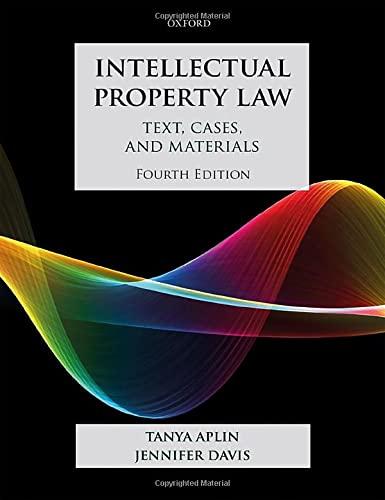Question
Question 1 Palm Oil Plantations is an established exporter of crude palm oil (CPO) and palm oil-related products, with its own palm oil plantations in
Question 1
Palm Oil Plantations is an established exporter of crude palm oil (CPO) and palm oil-related
products, with its own palm oil plantations in Country A. For the last 50 years, it has built up
a large customer base with a diversified portfolio of customers, primarily from four major
countries - B, C, D and E. It has an experienced in-house logistics team, supported by its own
fleet of vehicles capable of transporting its products with ease to the nearest port and strong
global connections with logistics and insurance providers.
Palm Oil Plantations' shipments for CPO tend to be in liquid bulk, whereas palm oil-related
products can be shipped via containers.
Its plantations and factories in Country A are located inland, about 2 hours by road to the
nearest port. Within Country A, the political, economic and legal environment is relatively
stable, albeit complex. Tonnage is relatively available, with domestic and foreign carrier lines
that are suited to carry the products to the four major countries mentioned above. The insurance
risks can be covered by both domestic and international cargo insurance companies.
Nonetheless, Country A has not been a signatory to some of the key international conventions
relating to carriage of goods.
The factories of the buyers from Countries B, C, D and E are located at inland points some 300
km from the respective ports of discharge. The following conditions have been noted in the
different countries:
Country B: It is a modernised country, with the government having invested
significantly into developing an educated and skilled workforce, automation and
digitisation technologies as well as efficient port and transportation infrastructure. Its
currency is stable, with unemployment figures below 1%. Most of the global insurance
companies and freight forwarders have a presence in this country. The country relies
extensively on imports and hence, businesses in this country is very familiar with import
formalities and global logistics requirements
Country C: The political and legal environment is relatively unstable, coupled with
challenging economic conditions. It is experiencing an overall GDP deficit. There are
also volatile fluctuations in home currency. As a result, buyers from this country can
be unreliable in terms of payment. It experiences some of the difficulties experienced
in Countries D and E. Despite a challenging political and legal environment, it has been
a signatory to and ratifier of many of the key international conventions relating to
international trade and carriage of goods.
Country D: Despite the government's efforts to modernise the port infrastructure,
there is still port congestion where the waiting time of ships varies from 3 to 14 days
with inefficiencies and reported safety incidents within the port terminal. Delayed
discharge of cargo and demurrage are frequently encountered. In addition, the customs
clearance and duties regime can be challenging. There are well-established insurance,
logistics and customs brokerage industries within this country.
Country E: Its government had invested heavily into building up the country's overall
transport infrastructure, resulting in a fairly efficient inland transportation
infrastructure. Its port is well organised and efficient, with increasing use of automated
handling within the port terminal. However, its customs and tax regime can be
complex. It is known for frequent strikes and other labour disturbances within the
country. In addition, the sea route from Country A to this country experiences stormy
weather and tumultuous weather at certain times of the year.
(a) Determine one (1) Incoterm which is reasonable for both Palm Oil Plantations and
the buyer from each country for the (i) crude palm oil and (ii) semi-processed palm oil
products.
In your analysis, you should discuss both the seller's and the buyer's obligations for
your recommended Incoterms, potential risks and mitigation measures and supporting
reasons for your recommendations.
(60 marks)
(b) Appraise five (5) key differences between the Hague-Visby Rules and the Hamburg
Rules in terms of the impact (if any) on the carrier, the seller and/or the buyers. Your
analysis should take into account the facts provided in the scenario above, such as the
conditions of the country and the types of cargo being shipped. Where appropriate,
you should cite the relevant provisions of the rules to support your answer.
(40 marks)
Step by Step Solution
There are 3 Steps involved in it
Step: 1

Get Instant Access to Expert-Tailored Solutions
See step-by-step solutions with expert insights and AI powered tools for academic success
Step: 2

Step: 3

Ace Your Homework with AI
Get the answers you need in no time with our AI-driven, step-by-step assistance
Get Started


